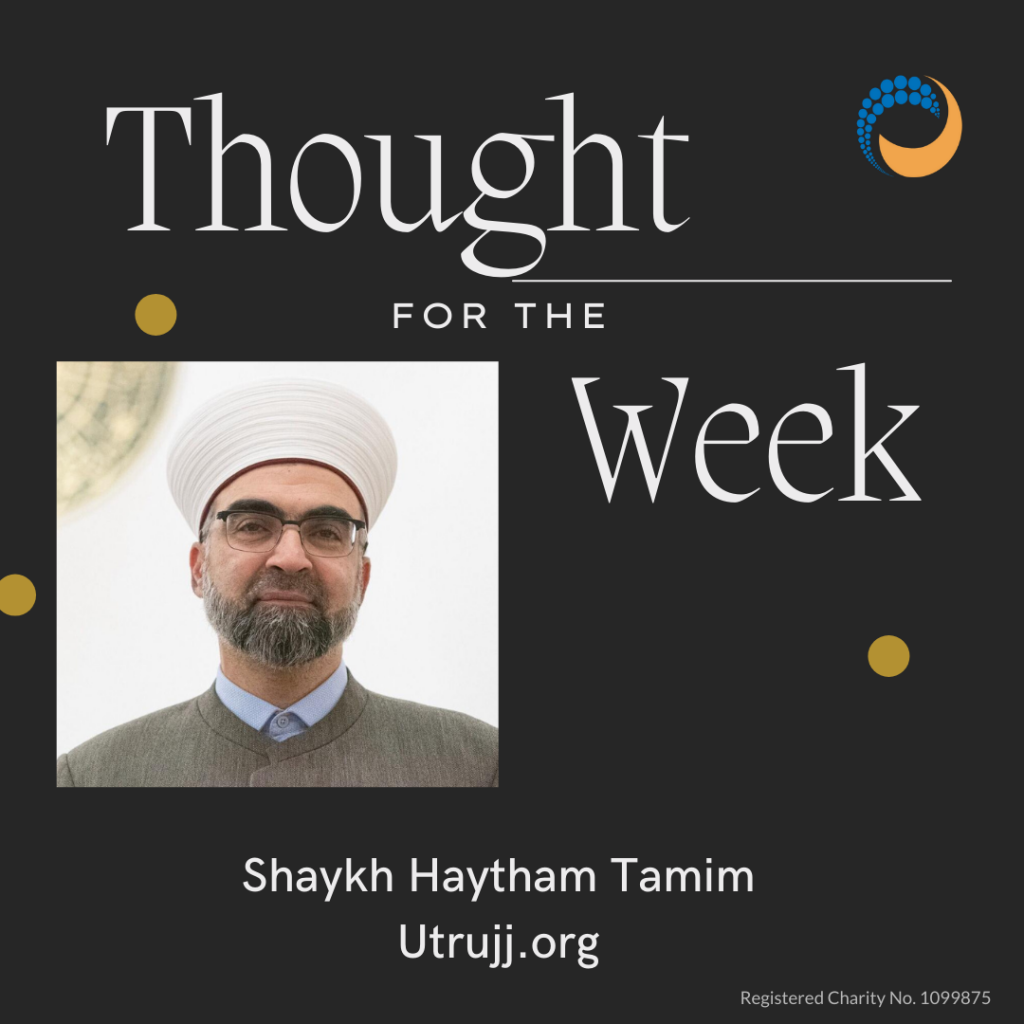How to be safe in times of Fitnah

In the Quran Allah Almighty mentioned in many verses the signs of tribulations and trials (fitan). At that time, only the worst will be left, but we are not in this situation yet, alhamdulilah. Nevertheless we have fitan so we need to get our priorities right.
Ourselves, our families first
[09:35, 11/03/2023] Shaykh Haytham Tamim: Keep monitoring yourself and check your Amanah and your covenants and your Taqwa
عن عَبْد اللَّهِ بْن عَمْرِو بْنِ الْعَاصِ رضِيَ اللهُ تعالى عَنه، قَالَ بَيْنَمَا نَحْنُ حَوْلَ رَسُولِ اللَّهِ صلى الله عليه وسلم إِذْ ذَكَرَ الْفِتْنَةَ فَقَالَ :” إِذَا رَأَيْتُمُ النَّاسَ قَدْ مَرِجَتْ عُهُودُهُمْ، وَخَفَّتْ أَمَانَاتُهُمْ، وَكَانُوا هَكَذَا ” . وَشَبَّكَ بَيْنَ أَصَابِعِهِ قَالَ: فَقُمْتُ إِلَيْهِ فَقُلْتُ: كَيْفَ أَفْعَلُ عِنْدَ ذَلِكَ، جَعَلَنِي اللَّهُ فِدَاكَ؟ قَالَ ”
١-الْزَمْ بَيْتَكَ،
٢-وَامْلِكْ عَلَيْكَ لِسَانَكَ،
٣-وَخُذْ بِمَا تَعْرِفُ،
٤-وَدَعْ مَا تُنْكِرُ،
٥-وَعَلَيْكَ بِأَمْرِ خَاصَّةِ نَفْسِكَ،
٦-وَدَعْ عَنْكَ أَمْرَ الْعَامَّةِ ” . أبو داود.
Abdullah ibn Amr ibn al-‘As (may Allah be pleased with him) narrated:
When we were around the Messenger of Allah ﷺ, he mentioned the period of commotion (fitnah) saying: When you see the people that their covenants have been impaired, (the fulfilling of) the trusts becomes rare, and they become thus (intertwining his fingers). I then got up and said: What should I do at that time, may Allah make me ransom for you? He replied:
1. Stay in your house, (i.e. focus on your worship)
2. control your tongue (i.e. from uttering evil)
3. accept what you know (i.e. follow the truth that you recognise – what is inline with Shariah),
4. abandon what you disapprove of, (keep away from everything haram)
5. attend to your own affairs (i.e. look after your family)
6. and leave alone the affairs of the public. (i.e. don’t follow the crowd when they are immersed in haram)
[Abu Dawoud]
In another narration:
عَنْ عَبْدِ اللَّهِ بْنِ عَمْرٍو رضِيَ اللهُ تعالى عَنه، أَنَّ رَسُولَ اللَّهِ ـ صلى الله عليه وسلم ـ قَالَ ” كَيْفَ بِكُمْ وَبِزَمَانٍ يُوشِكُ أَنْ يَأْتِيَ : يُغَرْبَلُ النَّاسُ فِيهِ غَرْبَلَةً، وَتَبْقَى حُثَالَةٌ مِنَ النَّاسِ:
قَدْ مَرِجَتْ عُهُودُهُمْ وَأَمَانَاتُهُمْ، فَاخْتَلَفُوا وَكَانُوا هَكَذَا ” . وَشَبَّكَ بَيْنَ أَصَابِعِهِ! قَالُوا: كَيْفَ بِنَا يَا رَسُولَ اللَّهِ إِذَا كَانَ ذَلِكَ؟ قَالَ:”
١-تَأْخُذُونَ بِمَا تَعْرِفُونَ،
٢-وَتَدَعُونَ مَا تُنْكِرُونَ،
٣-وَتُقْبِلُونَ عَلَى خَاصَّتِكُمْ،
٤-وَتَذَرُونَ أَمْرَ عَوَامِّكُمْ ”. ابن ماجه.
‘Abdullah bin ‘Amr (may Allah be pleased with him) narrated that the Messenger of Allah ﷺ said:
How will you be at a time that will soon come, when the good people will be sifted through death and only the worst ones will be left, who will break their promises and betray their trusts, and they will differ while they were previously together like this,” – and he interlaced his fingers. They said: “What should we do, O Messenger of Allah, when that comes to pass?” He said:
- “Follow that which you know is true,
- and leave that which you know is wrong.
- Take care of your own affairs
- and turn away from the common folk.” [Ibn Majah]
A time will come when covenants are broken, it is hard to trust people. People are uninterested in keeping their word and honour is rare. When it becomes hard to distinguish between righteous people and evil people the Prophet (peace be upon him) gave his Ummah the prescription of what to do in this scenario.
He taught us to ‘stay at home’, meaning that we should not contribute to the fitnah, to control our tongues and not spread fitnah and accept the truth, because the truth has light in it.”
Allah has given every human being the capability to distinguish between right and wrong, due to the innate ability to recognise the truth (fitrah) within us. However this becomes corrupted by toxic environments.
He also taught us to attend to and prioritise our affairs, because Allah will ask us about ourselves and our families, as they are our priority.
It means during times of fitan your priority is to protect yourself and your family. If you can’t forbid what is evil and promote what is good don’t get yourself in danger – keep safe.
Therefore he advise us to leave the affairs of the public, as the standards which are followed by the public should not be the standards we follow. Don’t go along with what is accepted by society, because the Shariah is the standard we follow.
If everyone is doing wrong, it doesn’t make it right.
The Prophet (peace be upon him) is making us take responsibility for ourselves, because during the time of fitnah, one can easily lose one’s self, and become clouded by many things, especially when scholars are supporting tyrants and wrongdoers – it causes confusion, so the Shariah keeps you safe.
May Allah Almighty enable us to avoid fitnah and stick to your priorities. Ameen
Khutbah Shaykh Haytham Tamim 10th March 2023.
Related posts
How to protect yourself from fitnah
Five signs of the day of judgement
Time passing quickly – a sign of the day of judgement
How to deal with difficult family members
Rising prices, rising chances for reward
Public wealth and material wealth and real wealth
- The truth is more powerful than lies
- Does a bride’s wali have to be Muslim?
- Is is permissible to lead a salah split over different rooms?
- Global IT outage. When systems go down…
- The concept of worship. What are ibadah and ihsan – and how do they lead to self development?

Recommended Posts

The truth is more powerful than lies
July 26, 2024

Global IT outage. When systems go down…
July 19, 2024

